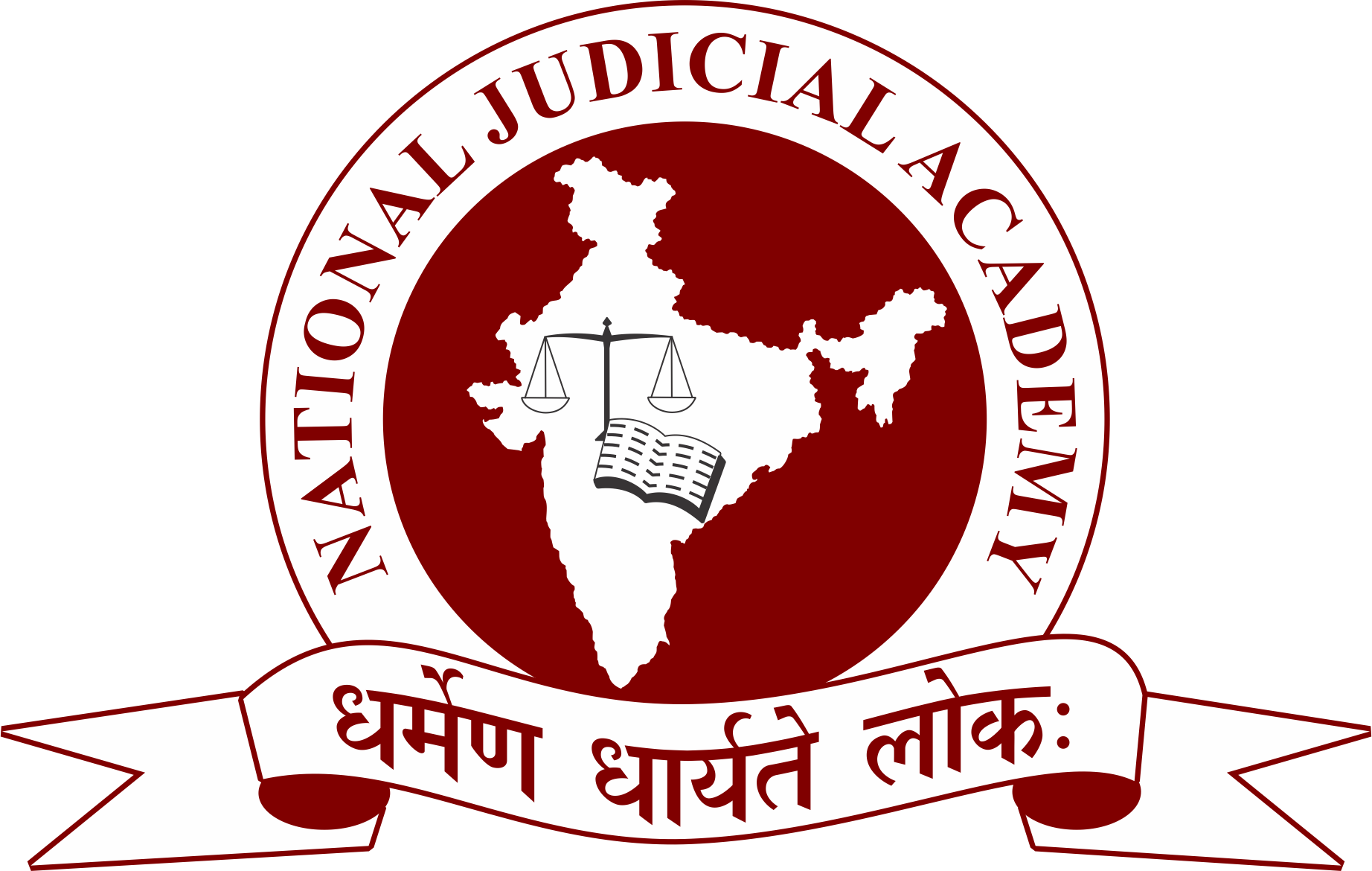
|
National Judicial Academic Council
Members of National Judicial Academic Council
[As on 05 June, 2025]
Pursuant to the Resolution adopted in the Chief Justices' Conference, 2016 under Agenda Item No. 9, a
National Judicial Academic Council has been established by the Hon'ble Chief Justice of India as
hereunder:-
| 1. |
Hon'ble The Chief Justice of India |
- Chairperson |
| 2. |
Hon'ble Mr. Justice Surya Kant |
- Member |
| 3. |
Hon'ble Mr. Justice Vikram Nath |
- Member |
| 4. |
Judge-In-Charge
Judicial Training & Research Institute,
Lucknow, U.P. |
- Member |
| 5. |
President, Board of Governors
Telangana State Judicial Academy
Secundrabad, Telangana |
- Member |
| 6. |
Director & Member of the Academy
Maharashtra Judicial Academy &
Indian Mediation Centre & Training Institute, Uttan |
- Member |
| 7. |
Chairman
Judicial Officers Training Institute Maharashtra |
- Member |
| 8. |
Judge-In-Charge
West Bengal Judicial Academy, Kolkata |
- Member |
| 9. |
Chairman
Chhattisgarh State Judicial Academy
Bilaspur, Chhattisgarh |
- Member |
| 10. |
Chairperson (Judge-In-Charge)
Delhi Judicial Academy
Delhi |
- Member |
| 11. |
Judge-In-Charge (Training)
Judicial Adademy
Guwahati, Assam |
- Member |
| 12. |
President
Gujarat State Judicial Academy
Ahmedabad, Gujarat |
- Member |
| 13. |
President
Himachal Pradesh Judicial Academy
Shimla, Himachal Pradesh |
- Member |
| 14. |
Chairman
J&K State Judicial Academy
Jammu/Srinagar, J&K |
- Member |
| 15. |
Patron-in-Chief (Chairman)
Judicial Academy
Ranchi, Jharkhand |
- Member |
| 16. |
President
Karnataka Judicial Academy
Bengaluru, Karnataka |
- Member |
| 17. |
President of the BOG
Kerala Judicial Academy
Kochi, Kerala |
- Member |
| 18. |
Judge-In-Charge
Madhya Pradesh State Judicial Academy
Jabalpur, Madhya Pradesh |
- Member |
| 19. |
President
Tamil Nadu State Judicial Academy
Chennai, Tamil Nadu |
- Member |
| 20. |
Chairman/Judge-In-Charge
Manipur Judicial Academy
Imphal, Manipur |
- Member |
| 21. |
Chairperson
Odisha Judicial Academy
Cuttack, Odisha |
- Member |
| 22. |
Chairman
Bihar Judicial Academy
Patna, Bihar |
- Member |
| 23. |
President
Chandigarh Judicial Academy
Chandigarh |
- Member |
| 24. |
Chairman/Judge-In-Charge
Rajasthan State Judicial Academy
Jodhpur, Rajasthan |
- Member |
| 25. |
President
Sikkim Judicial Academy
Gangtok, Sikkim |
- Member |
| 26. |
Judge-In-Charge
Tripura Judicial Academy
Agartala, Tripura |
- Member |
| 27. |
Judge-In-Charge
Uttarakhand Judicial & Legal Academy
Nainital, Uttarakhand |
- Member |
| 28. |
Judge-In-Charge
Meghalaya State Judicial Academy
Shillong, Meghalaya |
- Member |
| 29. |
Secretary
Department of Justice
Government of India |
- Member |
| 30. |
Prof. (Dr.) Sudhir Krishnaswamy
Vice-Chancellor of NLSIU |
-Nominee of the Chief Justice of India* |
| 31. |
Dr. Menaka Guruswamy
Senior Advocate Supreme Court of India |
-Nominee of the Chief Justice of India* |
| 32. |
Director
National Judicial Academy
Bhopal |
- Member Secretary |
* [The tenure of nominee members shall be for two years.]
The function of the Council would be to:
(i) Promote the cause of judicial education;
(ii) Devise the academic calendar for NJA;
(iii) Prescribe, and approve academic calendars for SJAs;
(iv) Promote the growth and availability of resources required for judicial training and education;
(v) Coordinate and monitor the functioning of NJA & SJAs;
(vi) Suggest methods for improving judicial education facilities and cooperation among NJA and
SJAs. NJA and SJAs will submit annual academic calendars of their respective academies to the
Council for finalization. The annual calendars of SJAs be prepared in a manner that to the extent
practicable, the distribution of subjects be divided in the ratio of 80:20 between pan India subjects
and state specific subjects (the proportion shall be 50:50 for the States of Nagaland, Mizoram,
Meghalaya, Arunachal Pradesh, Manipur and Sikkim).
|



